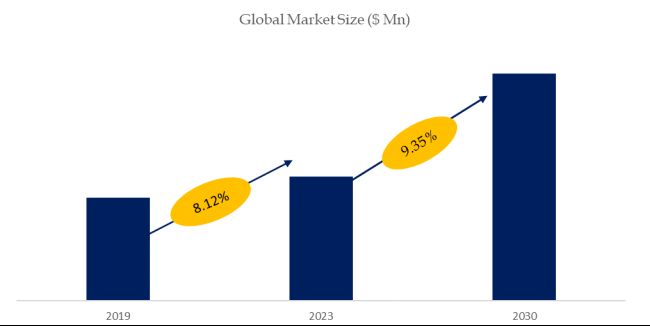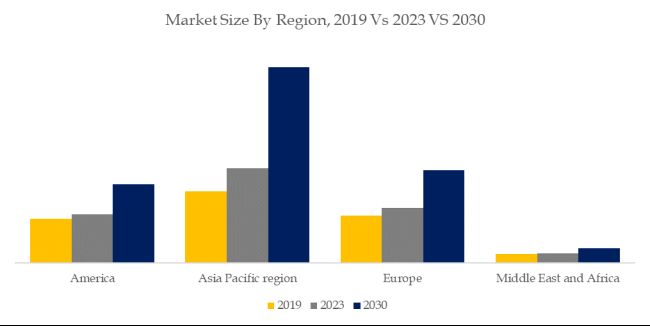Crash Battery Disconnect Fuse Market Summary
According to the new market research report “Global Crash Battery Disconnect Fuse Market Report 2024-2030”, published by QYResearch, the global Crash Battery Disconnect Fuse market size is projected to reach USD 0.88 billion by 2030, at a CAGR of 8.9% during the forecast period.
- Global Crash Battery Disconnect Fuse MarketSize(US$ Million), 2019-2030

Based on or includes research from QYResearch: Global Crash Battery Disconnect Fuse Market Report 2024-2030.
Market Drivers:
Global recovery and growth of automobile production. Global vehicle sales are expected to recover from negative factors such as COVID-19 and the semiconductor shortage.
National policy support aimed at the advancement and diffusion of technologies such as carbon-neutral electric vehicles and renewable energy.
Stricter automotive safety standards in emerging countries.
Restraint:
The application of Crash Battery Disconnect Fuse on batteries is not long, and long-term technical accumulation is still required.
The cost is high. Crash Battery Disconnect Fuse is a one-time device. After the circuit is disconnected by blasting, the device is damaged and cannot be recovered. It needs to be replaced with a new device to maintain the original function and connect the circuit.
In terms of high-voltage safety, complex working conditions of high-voltage circuits, and device stability control, it needs to complement the functions of traditional fuses, and may not be able to replace them for the time being.
Opportunity:
As the safety requirements for new energy vehicles are getting higher and higher, active controllable fuses may become the main development trend in the future.
The development of the new energy automobile industry will change from policy-driven to market-driven. The supply of high-quality products will create market demand, and the decline in battery costs will promote the rapid growth of the industry.
- Global Crash Battery Disconnect Fuse Top9Players Ranking and Market Share(Continually updated)

Based on or includes research from QYResearch: Global Crash Battery Disconnect Fuse Market Report 2024-2030.
According to QYResearch Top Players Research Center, the global key manufacturers of Crash Battery Disconnect Fuse include Daicel, Miba AG, etc. In 2023, the global top three players had a share approximately 42.0% in terms of revenue.
- Crash Battery Disconnect Fuse,Global Market Size, Split by Product Segment

Based on or includes research from QYResearch: Global Crash Battery Disconnect Fuse Market Report 2024-2030.
In terms of product type, currently High Pressure is the largest segment, hold a share of 60.2%.
- Crash Battery Disconnect Fuse,Global Market Size, Split by ApplicationSegment

Based on or includes research from QYResearch: Global Crash Battery Disconnect Fuse Market Report 2024-2030.
In terms of product application, currently Automobile is the largest segment, hold a share of 79.0%.
- Crash Battery Disconnect Fuse,Global Market Size, Split by Region

Based on or includes research from QYResearch: Global Crash Battery Disconnect Fuse Market Report 2024-2030.
About QYResearch
QYResearch founded in California, USA in 2007.It is a leading global market research and consulting company. With over 16 years’ experience and professional research team in various cities over the world QY Research focuses on management consulting, database and seminar services, IPO consulting, industry chain research and customized research to help our clients in providing non-linear revenue model and make them successful. We are globally recognized for our expansive portfolio of services, good corporate citizenship, and our strong commitment to sustainability. Up to now, we have cooperated with more than 60,000 clients across five continents. Let’s work closely with you and build a bold and better future.
QYResearch is a world-renowned large-scale consulting company. The industry covers various high-tech industry chain market segments, spanning the semiconductor industry chain (semiconductor equipment and parts, semiconductor materials, ICs, Foundry, packaging and testing, discrete devices, sensors, optoelectronic devices), photovoltaic industry chain (equipment, cells, modules, auxiliary material brackets, inverters, power station terminals), new energy automobile industry chain (batteries and materials, auto parts, batteries, motors, electronic control, automotive semiconductors, etc.), communication industry chain (communication system equipment, terminal equipment, electronic components, RF front-end, optical modules, 4G/5G/6G, broadband, IoT, digital economy, AI), advanced materials industry Chain (metal materials, polymer materials, ceramic materials, nano materials, etc.), machinery manufacturing industry chain (CNC machine tools, construction machinery, electrical machinery, 3C automation, industrial robots, lasers, industrial control, drones), food, beverages and pharmaceuticals, medical equipment, agriculture, etc.